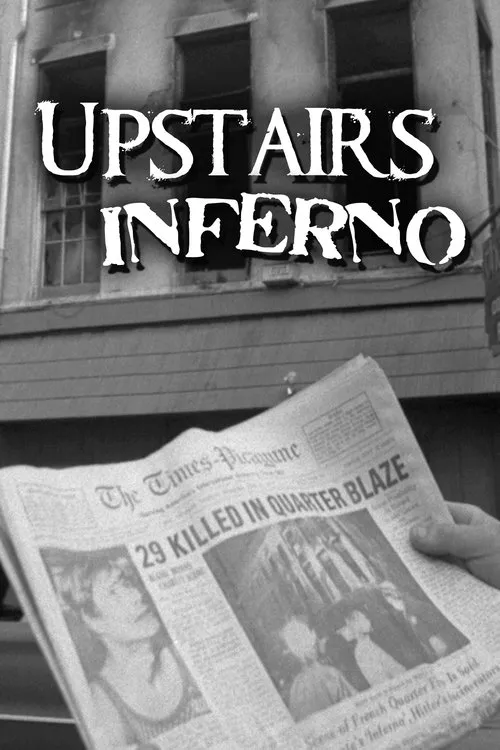Upstairs Inferno

Plot
Upstairs Inferno is a 2012 American documentary film directed by Robert L. Camina that delves into the tragic events that transpired on June 24, 1973, at the Up Stairs Lounge, a gay bar located in New Orleans, Louisiana. The film seeks to shed light on a pivotal yet largely forgotten chapter in American LGBTQ+ history. On a sweltering summer evening in 1973, a fire ravaged the Up Stairs Lounge, claiming the lives of 32 individuals, mostly gay men. The fire broke out at 1:15 a.m. and quickly engulfed the one-story wooden building, leaving behind a trail of devastation and heartbreak. However, the true extent of the tragedy goes beyond the loss of life. At the time, the gay community in New Orleans was still reeling from a wave of hostility and intolerance. The Up Stairs Lounge was one of the few safe spaces where gay men could gather, socialize, and be themselves without fear of persecution. The bar was a haven, but also a vulnerability, given the hostile environment that surrounded it. It was a place where the LGBTQ+ community could momentarily escape the cruelty and disdain that they faced in their daily lives. As the investigation into the fire unfolded, authorities quickly discovered that the blaze was no accident. Arson had left its mark, and the perpetrator was identified as an individual named Ron Ciaschini. However, despite the evidence pointing to Ciaschini, the authorities failed to adequately investigate the circumstances surrounding the fire, and Ciaschini went unpunished for his crime. The Upstairs Inferno documentary shines a light on the systemic failures and institutionalized homophobia that enabled the tragic events of June 24, 1973. The film features interviews with those who were connected to the Up Stairs Lounge, including survivors, witnesses, and members of the LGBTQ+ community. Their testimonies offer a poignant and powerful narrative of a community that was ravaged by violence and trauma. One of the most striking aspects of the film is its exploration of the ways in which the fire was initially ignored or downplayed by authorities and mainstream media. The tragedy was dismissed as a mere 'bar fire,' with little attention given to the loss of life or the identities of those who perished. It was as if the victimhood of the LGBTQ+ community was considered inconsequential, unworthy of the same level of attention and outrage that would have been afforded to a similar tragedy in a more 'respectable' community. Director Robert L. Camina's narrative raises essential questions about the responsibility of those in power to protect the vulnerable and marginalized. The film does not shy away from the brutal truths of the era, laying bare the systemic failings that allowed a crime of this magnitude to go unnoticed and unpunished. In its poignant and powerful account, Upstairs Inferno reminds us that the lives of those who were lost on June 24, 1973, were not mere statistics or collateral damage. Each of the 32 individuals who perished was a human being with a story, a family, and a community that was ripped apart by hate and indifference. The documentary serves as a solemn reminder that the memory of their lives should be honored and preserved, and that we must learn from the past to build a more just and inclusive future for all. As we reflect on the events of the Upstairs Inferno, we are confronted with a painful legacy of homophobia, racism, and systemic failure. The film invites us to confront the dark aspects of our collective history and to recognize the interconnectedness of struggles for human rights. In doing so, we are reminded that the fight for equality and justice is far from over and that the memory of the 32 lives lost at the Up Stairs Lounge continues to echo through the ages as a call to action, a reminder of our responsibility to confront the shadows of our past and to strive for a brighter future for all.
Reviews
Recommendations




